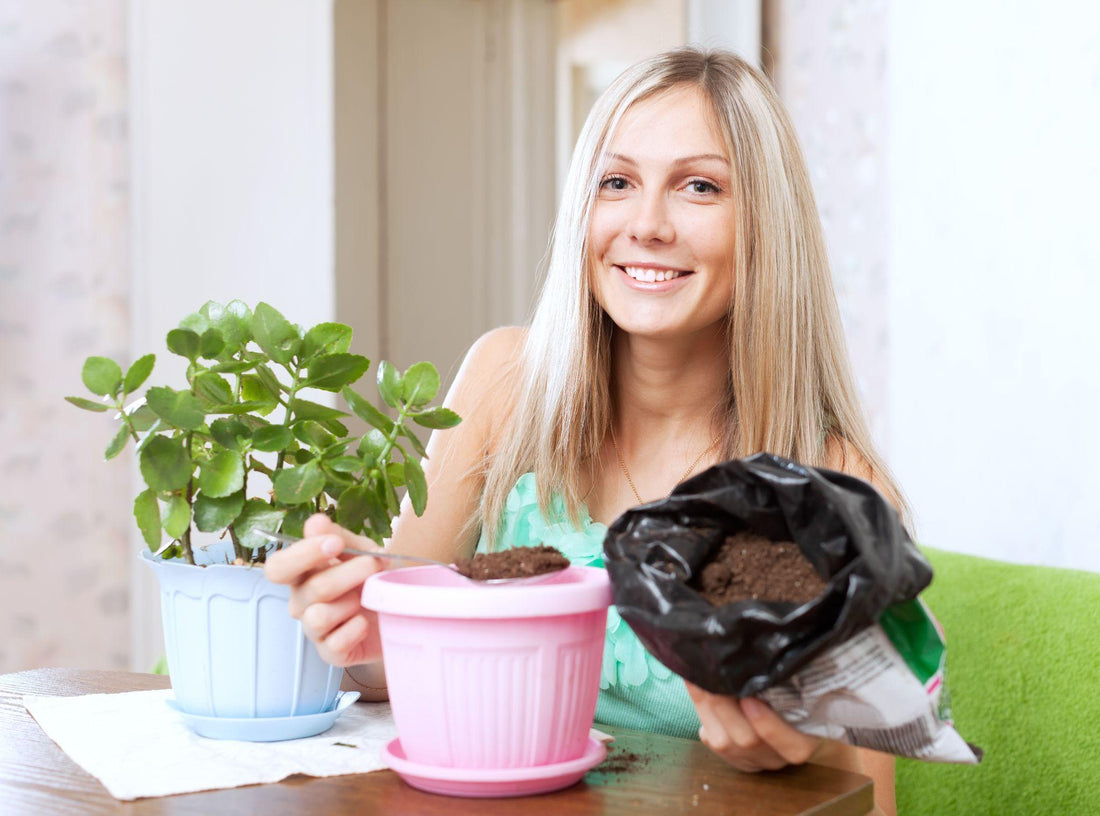Taking care of houseplants is one of the most satisfying hobbies—but did you know that just watering them isn’t enough? For plants to grow strong and healthy, they need food. The answer lies in fertilizers. When you want something safe, natural, and organic, it can be difficult to know which one is right for you.
You'll learn what organic fertilizers are, why they matter for indoor plants, and what products you can trust for lush, happy greenery. Also, we'll show you Healthy Paw Life's range of organic fertilizers designed to promote vibrant, long-term plant growth.
Why Use Organic Fertilizer for House Plants?
The organic fertilizers are made from natural materials, such as plants, minerals, and animal waste. Chemical fertilizers harm the soil and burn roots. These fertilizers don't do that. Slowly, they release nutrients into the soil, improving its health. Fertilizers are safe for people, pets, and the environment. It makes them ideal for indoor use.
Here's why they're perfect for houseplants -
- Organic fertilizer nourishes the indoor plants.
- Improves soil health by encouraging microbes that promote healthy roots.
- Keeps your soil clean and natural without chemical buildup.
- No toxic run-off or fumes as they are eco-friendly.
Key Nutrients Indoor Plants Need

Even though different plants have different needs, most houseplants rely on a few essential nutrients -
- Nitrogen (N) - Encourages leafy growth.
- Phosphorus (P) - Supports root and flower development.
- Potassium (K) - Boosts overall plant health and resistance to disease.
Other vital nutrients include Sulfur, Silica, Calcium, and Magnesium.
You should pick a fertilizer with a well-balanced nutrient mix. It ensures your plants absorb them quickly.
Best Fertilizers for House Plants (Tried & Trusted)
Now, let’s talk about the real heroes, fertilizers that actually work. We at Healthy Paw Life support natural plant nutrition. Consider these three highly effective products -
1) Zolfolime - Sulfur Lawn and Plant Food Liquid
Zolfolime is a great choice for indoor plants that need a gentle sulfur boost. Plants need sulphur to produce proteins and enzymes. Lush green leaves and healthy stems are important. It helps balance soil pH, particularly in hard water areas.
Why it works -
- Improves leaf color and chlorophyll production.
- Helps control fungal diseases.
- Perfect for ferns, palms, and foliage-heavy plants.
How to use - During regular watering, mix with water and apply once every 10–15 days.
2) SiliKa Power – Premium Liquid Silica Plant Fertilizer and Supplement
Although we don't see silica as a household term, the substance is incredibly important to the health of our plants. Silika Power hardens plant cell walls so that they are stronger and resistant to disease. If your houseplants consistently flop over or get infested with pests, this is for you.
Why it works -
- Encourages healthy stems and structure.
- Enhances stress, drought, and disease tolerance.
- Most useful for succulents, snake plants, and flowering plants.
How to use - Whenever you water your plants, add a few drops every week or two.
3) Blossom Blend - Balanced Fertilizer Formula for Blossom and Growth
All-rounder formula provides a complete diet for your houseplants. Whether you're growing flowering indoor plants like peace lilies or leafy beauties like pothos, Blossom Blend has a balanced NPK ratio plus trace elements for steady growth and vibrant blooms.
Why it works -
- Encourages both foliage and flower growth.
- Includes micronutrients for long-term health.
- Great for beginners and experienced plant lovers alike.
How to use - Use once every 2 weeks for flowering plants and once a month for foliage plants.

Tips for Fertilizing Indoor Plants
Even the best fertilizer won’t help if used incorrectly. Follow these simple tips for the best results -
- Start with Healthy Soil - Fertilizer is a supplement, not a fix for poor soil.
- Less is More - Over-fertilizing can damage roots.
- Choose the Right Season - Most houseplants grow actively in spring and summer. Reduce feeding in fall and winter.
- Watch for Signs - Yellow leaves, slow growth, or no blooms could mean your plant needs nutrients.
Common Organic Ingredients in DIY Fertilizers
Most plant enthusiasts also love to create their own organic fertilizers. Kitchen scraps such as banana peels, eggshells, coffee grounds, and vegetable waste can be composted and refined into nutritious plant food.
Homemade fertilizers take time to degrade, however, might not provide balanced nutrition, and would even attract pests if improperly processed.
Final Thoughts
Caring for houseplants isn’t just about watering—it’s about nourishing them properly. The fertilizer on the right will make all the difference to your plants' growth, flowering, and thriving indoors.
For easy-to-use, high-quality ones, Healthy Paw Life's fertilizer series is worth a try -
- Zolfolime for healthier, fungus-free plants.
- SiliKa Power for robust stems and stress tolerance.
- Blossom Blend for optimal growth and flowering magic.
Organic plant nutrition is the key to a greener, healthier home, no matter whether you are a pro or a beginner.
Explore Healthy Paw Life's plant care line today and treat your houseplants to the organic edge they need! 🌿
Frequently Asked Questions
1) What is the best organic fertilizer for indoor plants?
The best organic fertilizer provides a balanced mix of nutrients, is easy to apply, and is safe to use indoors. Healthy Paw Life's products like Blossom Blend, Zofolime, and SiliKa Power are the best fertilizers. As, it can benefit to leafy, flowering, and stress-prone plants.
2) Can I make my own indoor plant fertilizer?
Yes, you can! Banana peels, coffee grounds, eggshells, and vegetable compost can be turned into DIY fertilizer. However, homemade options might lack balanced nutrients and can be messy. For ease and effectiveness, many plant parents prefer ready-to-use organic liquid fertilizers.
3) Is banana peel good for potted plants?
Yes it is! As plants that produce flowers and fruits can benefit from banana peels, which contain potassium, phosphorus, and calcium. Chop them up and mix into the soil or make a fermented banana peel tea. Still, it’s a slow-release option, so pair it with a balanced organic liquid fertilizer for the best results.



